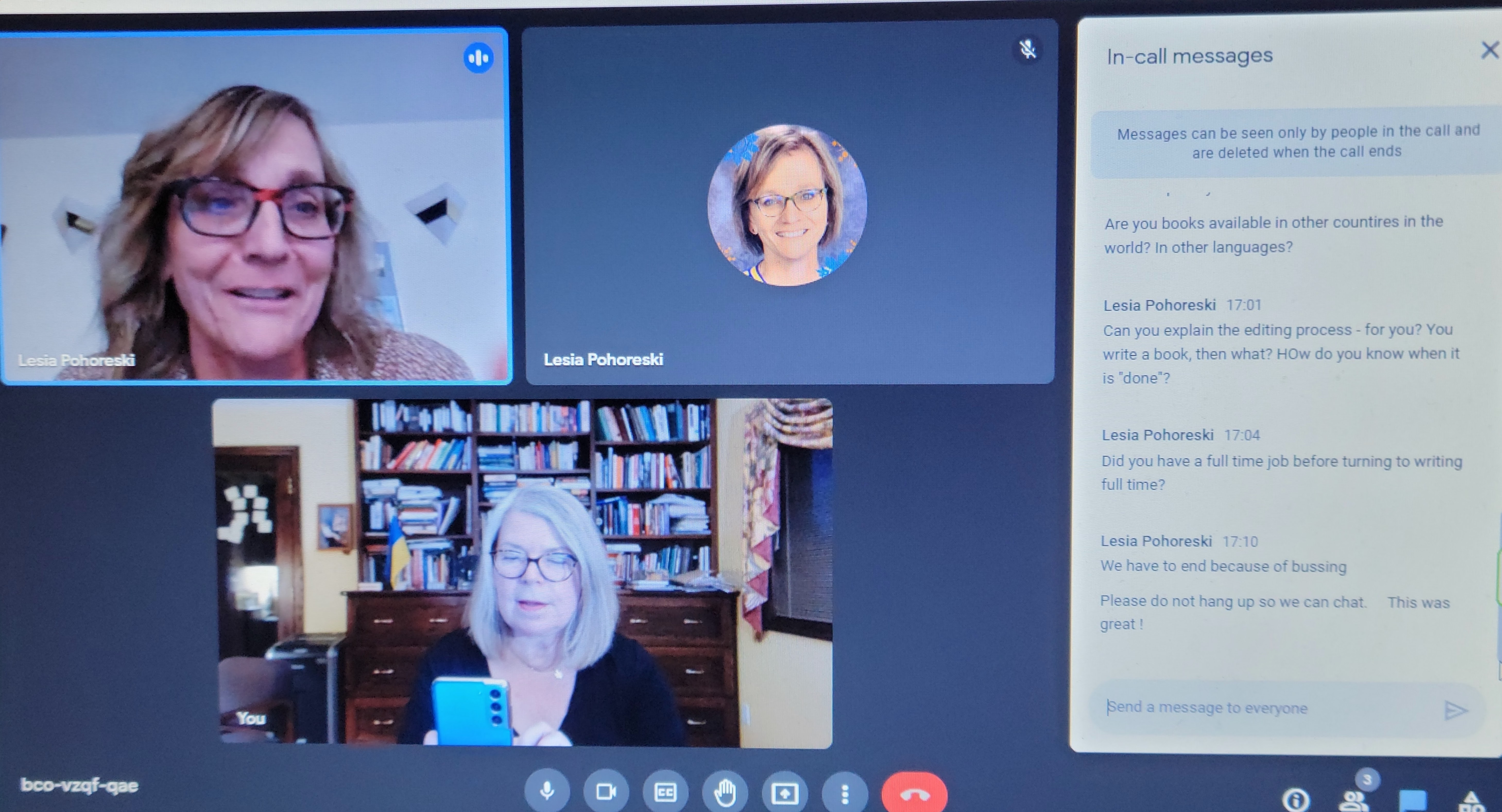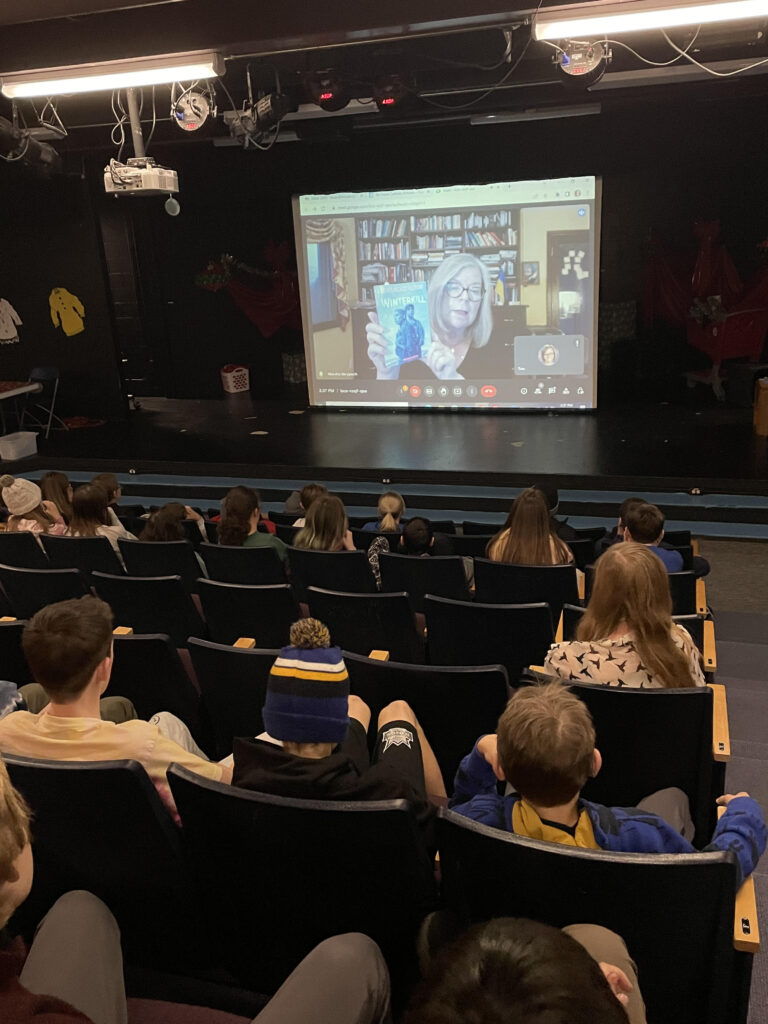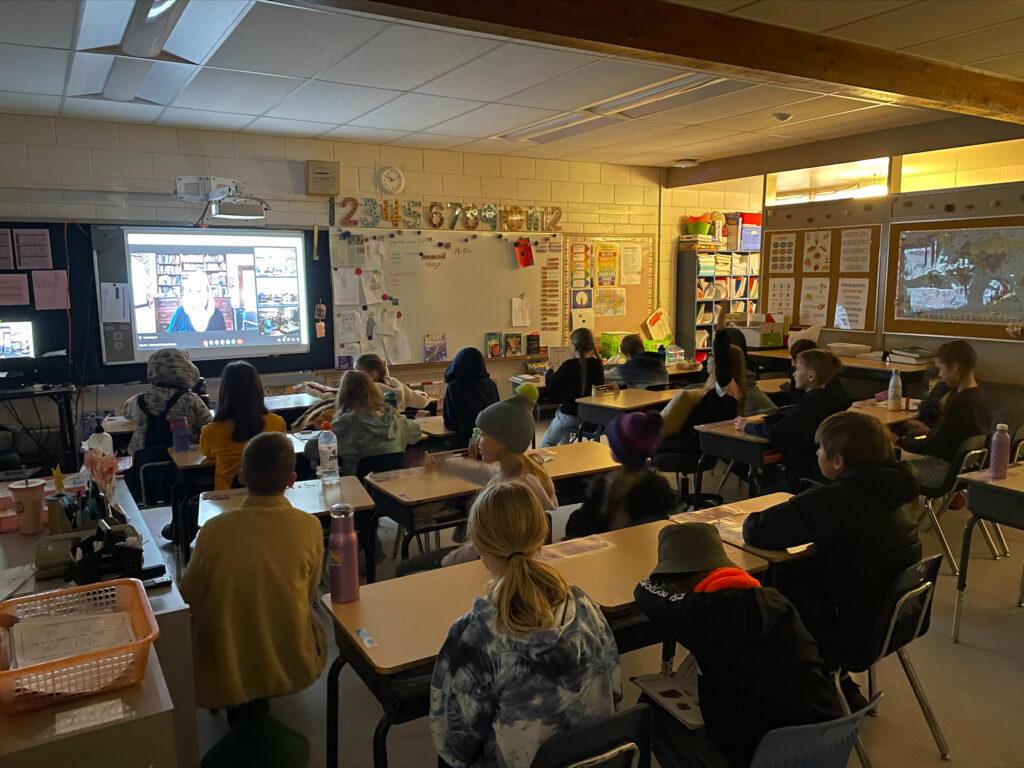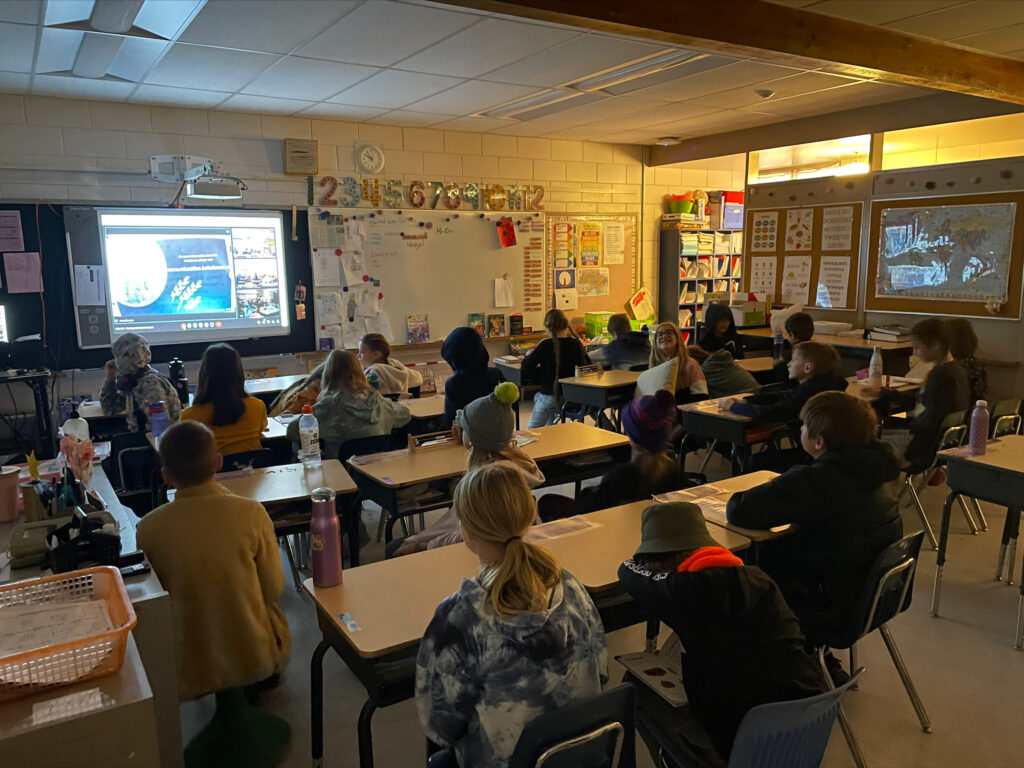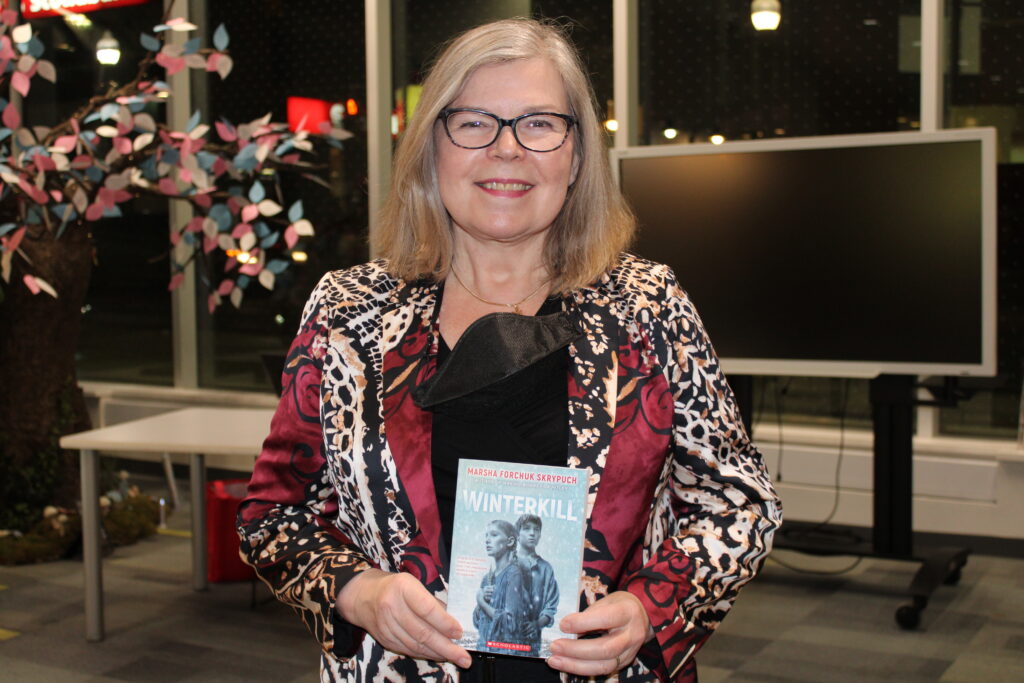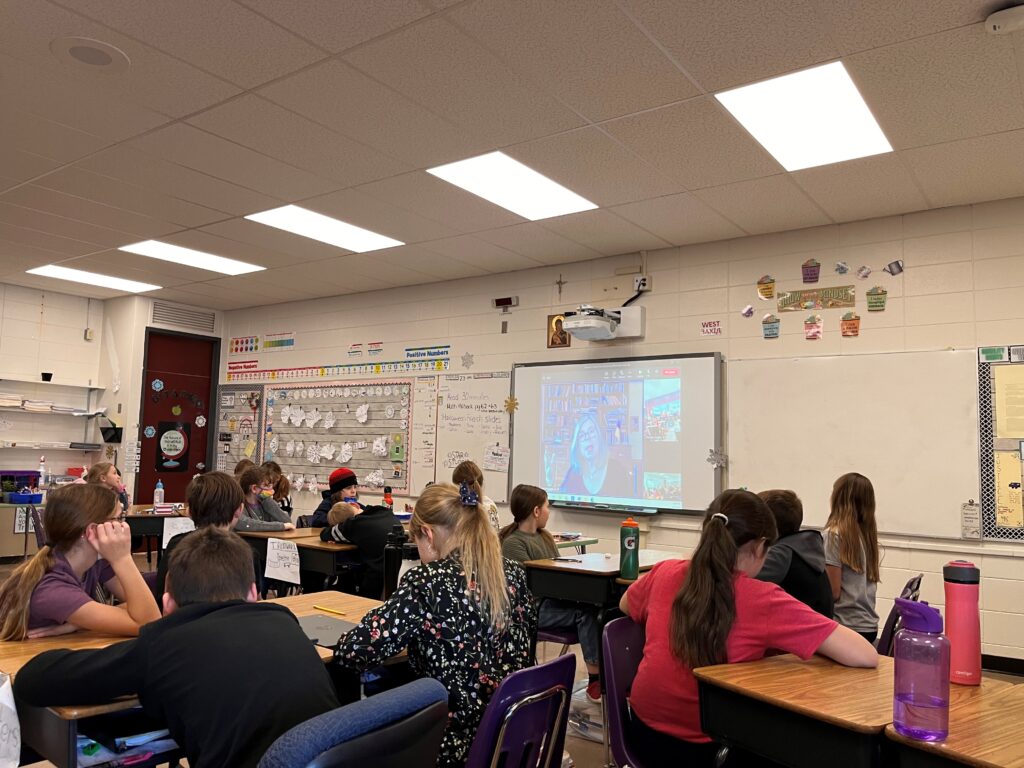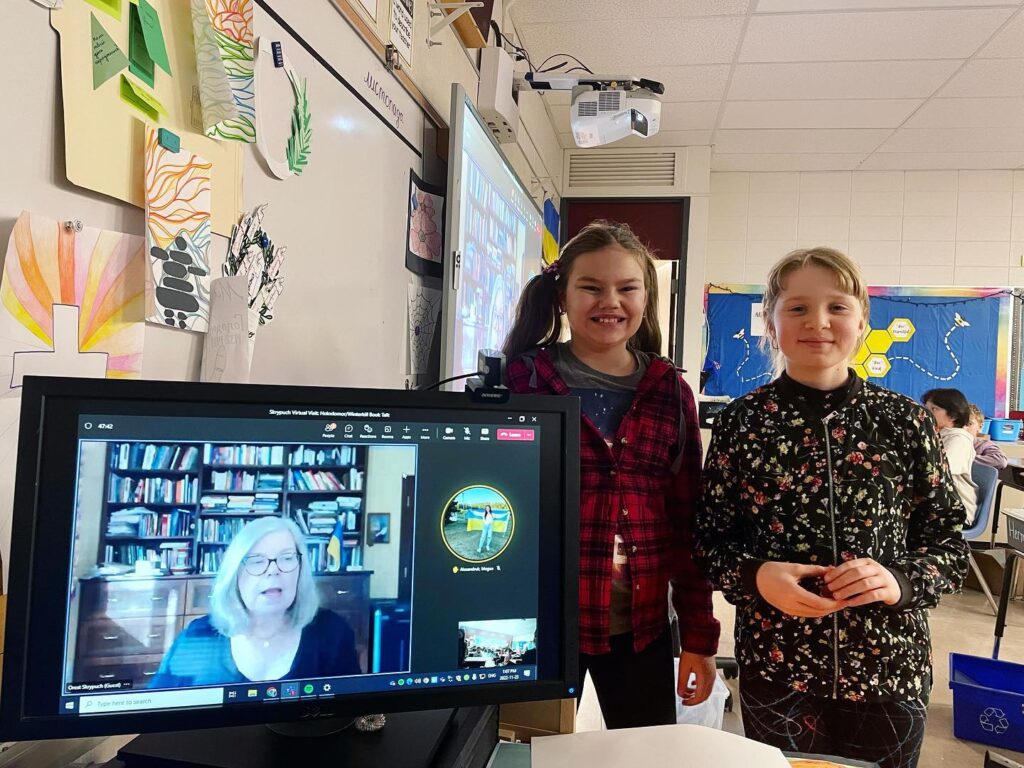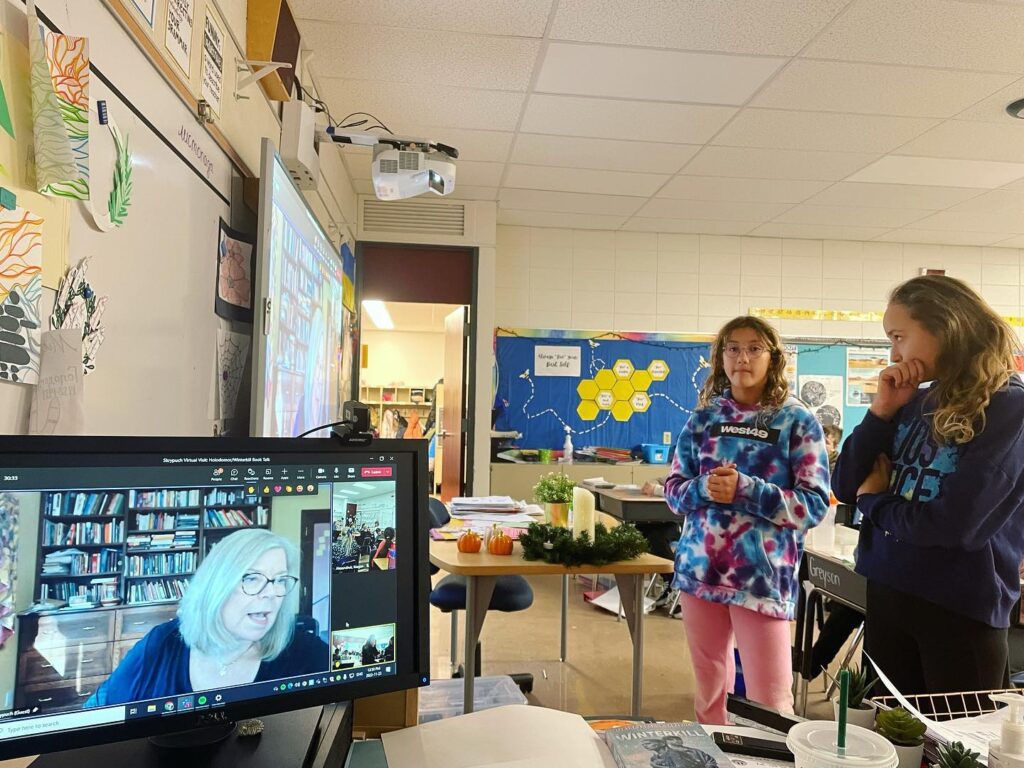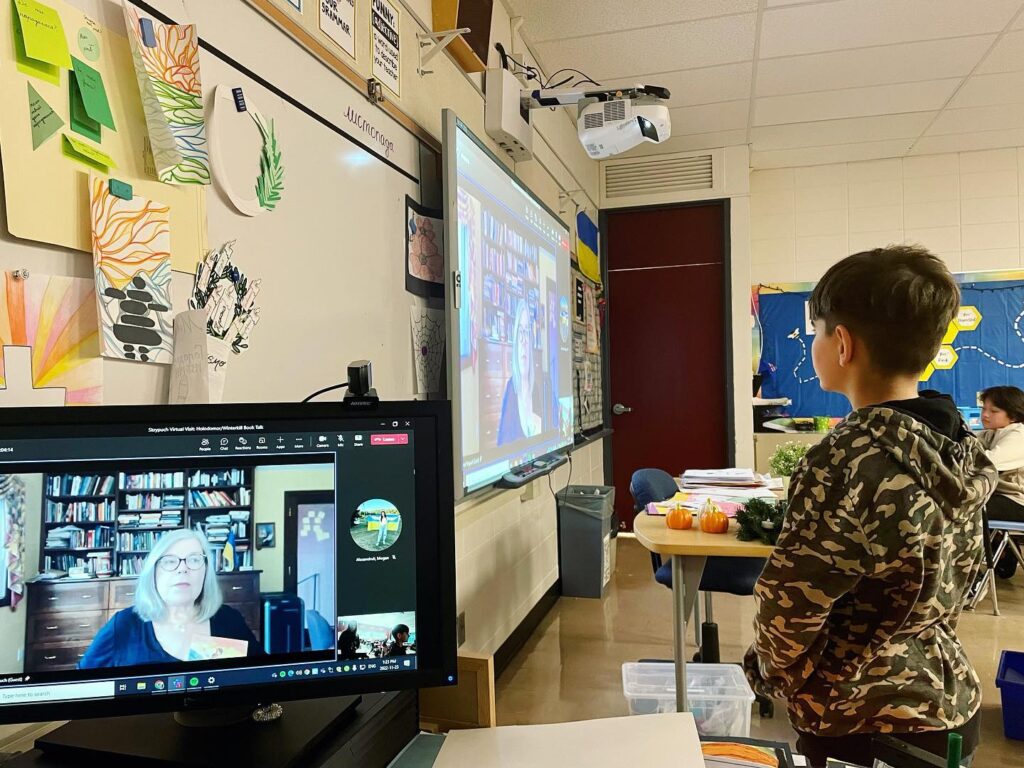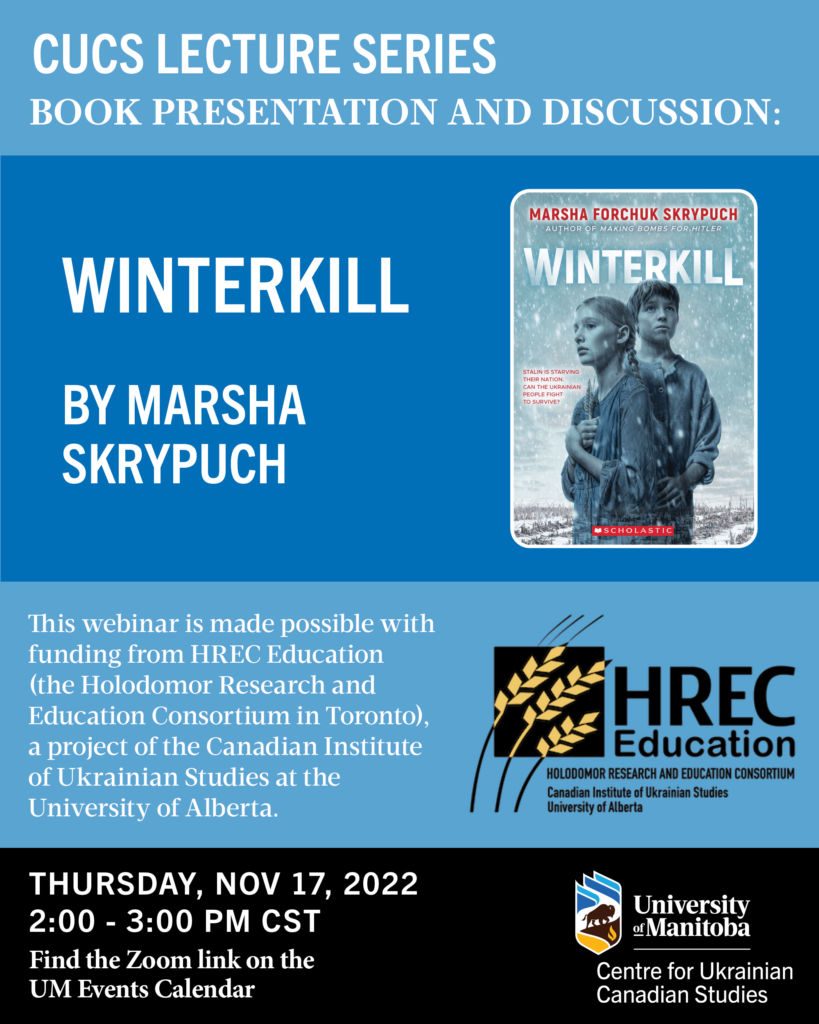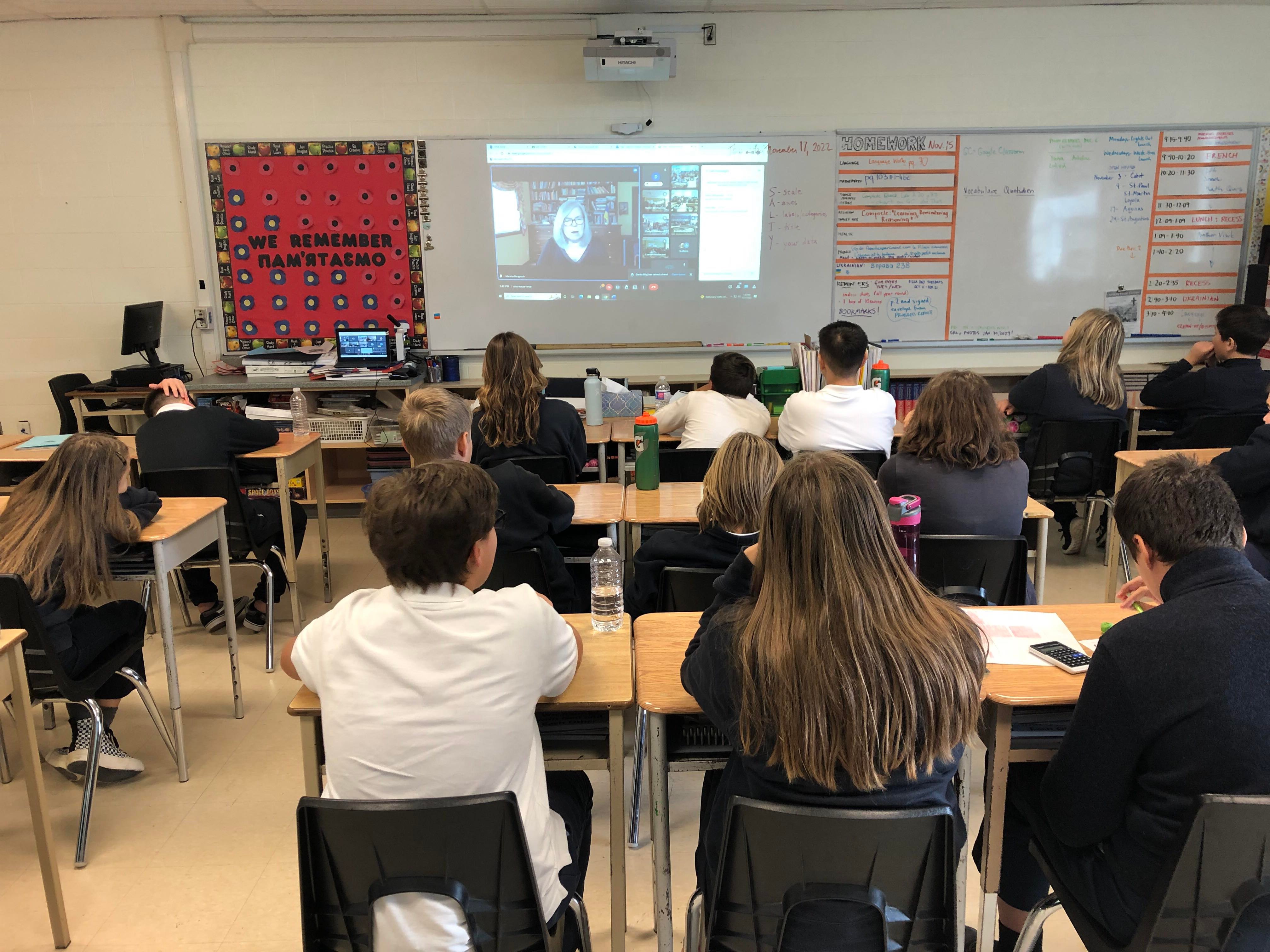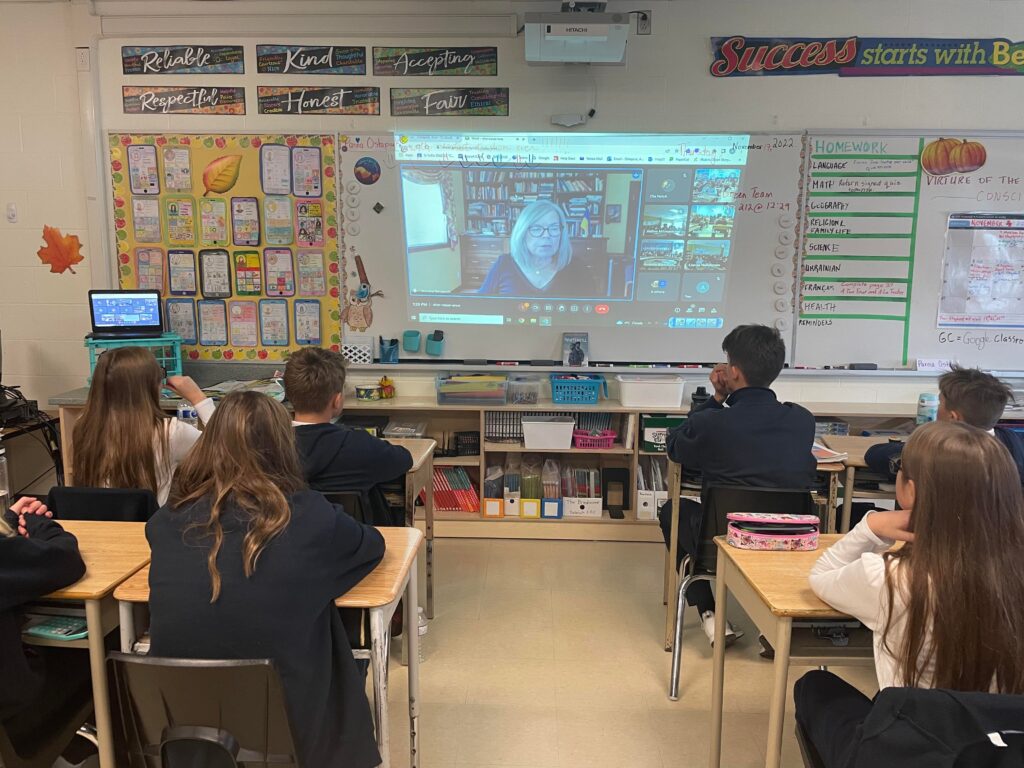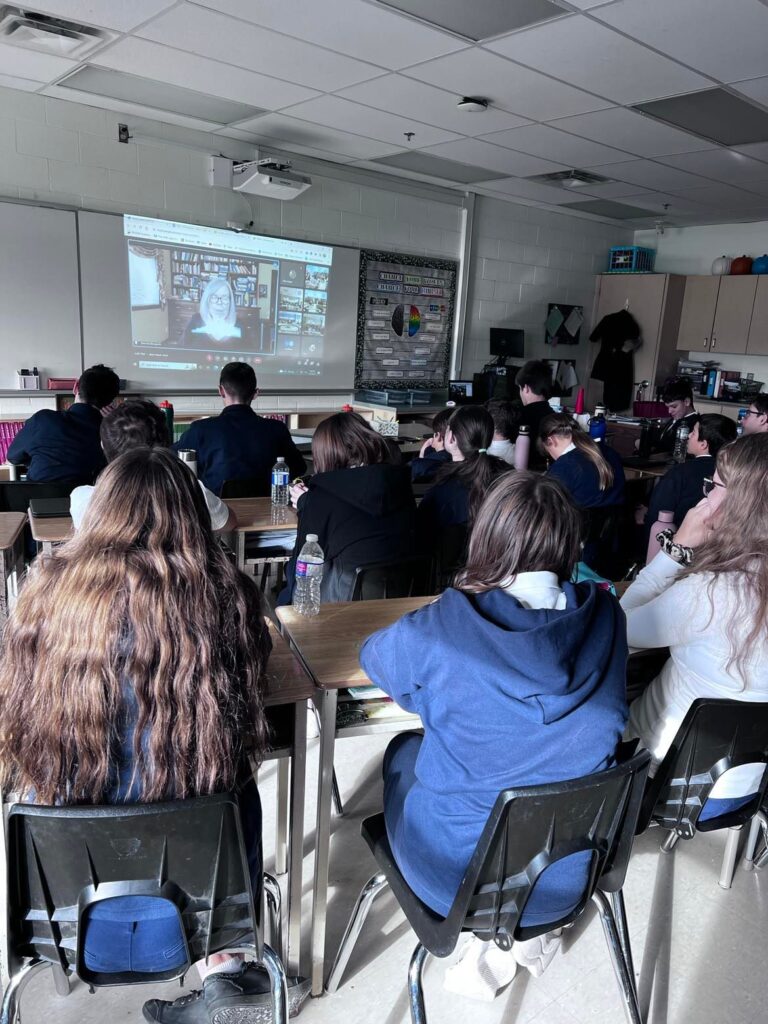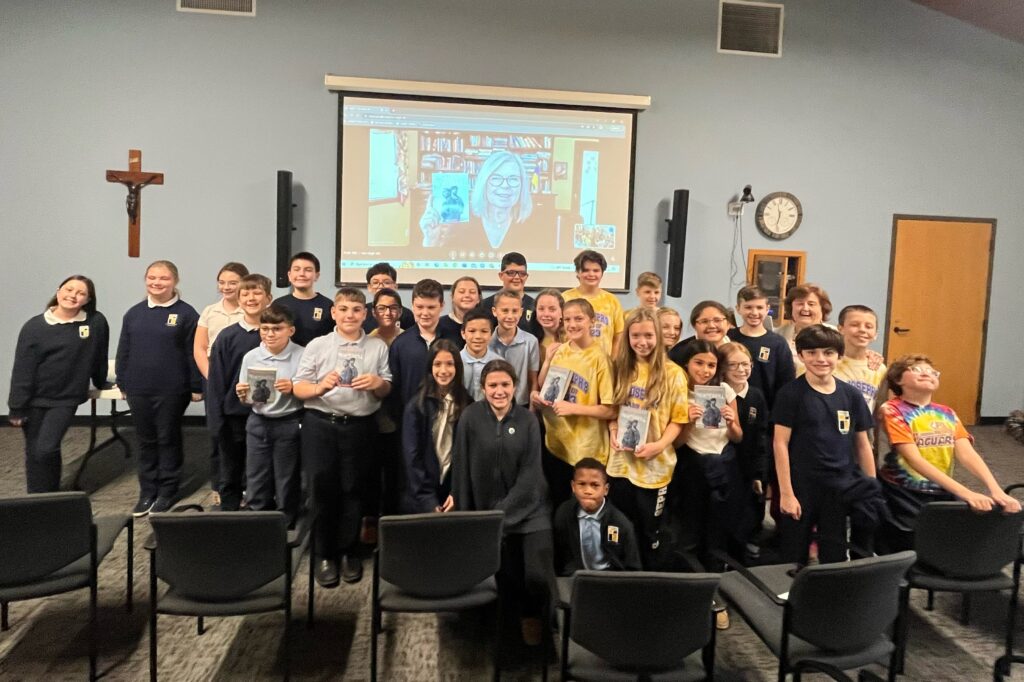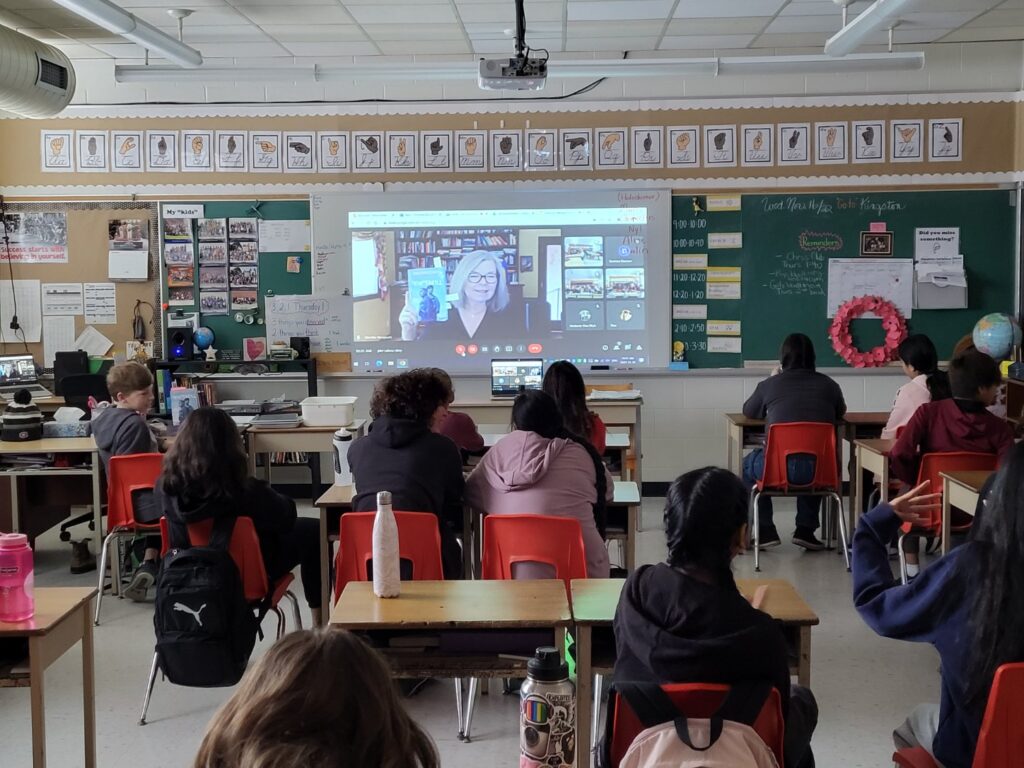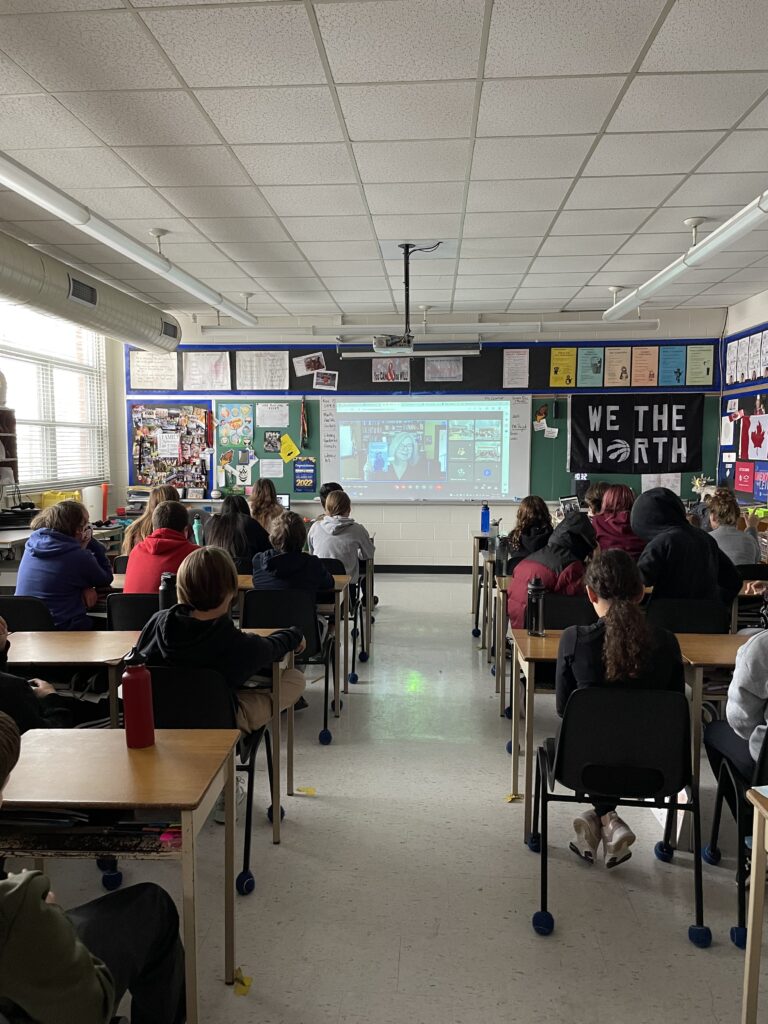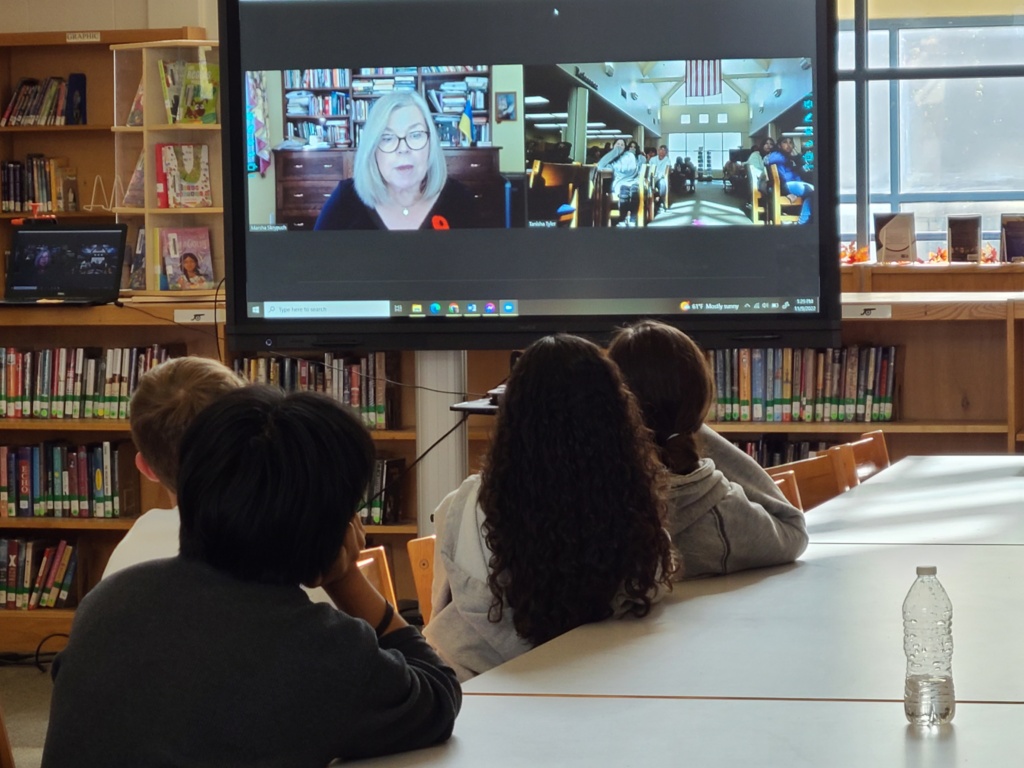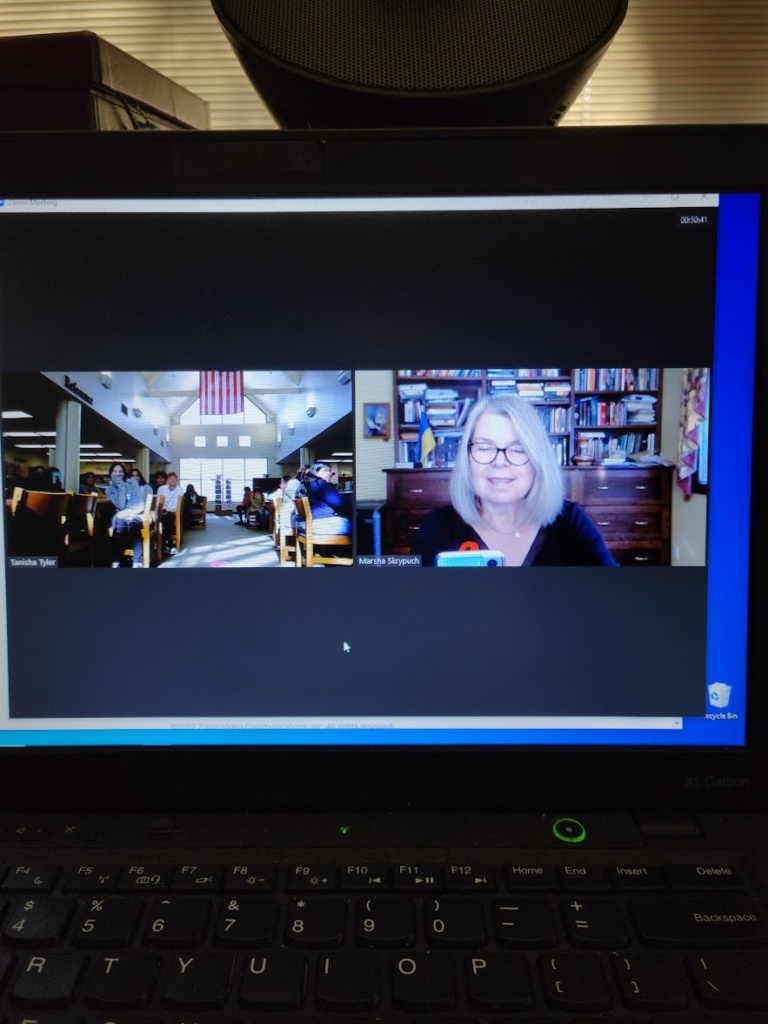This morning I did a virtual visit about Winterkill and the Holodomr with RF Morrison school in Winnipeg MB and late this afternoon, I spoke with St Theresa Catholic MS in Sherwood Park, AB. What both of these schools have in common is a large contingent of Canadian students whose first language is English but who have opted for Ukrainian language classes, plus recent refugees from Russia’s genocidal war on Ukraine who have come to these communities because of their welcoming populations and are attending schools where they can speak in Ukrainian but learn English.
The other thing both of these schools have in common? Utterly dedicated, compassionate teachers who do everything they can to make their new students feel welcome. I think these teachers have figured out how to bend time because when I hear about all that they’ve accomplished, I am in awe.
At RF Morrison, the students from Ukraine were particularly interested in what my connection to Ukraine was and why I wrote so much about Ukrainian history. From their perspective, having grandparents arrive in Canada from Ukraine more than a century ago made me seem pretty darned Canadian. They were curious about the Canadian connection with the Holodomor in Winterkill, about the idealists who joined the Canadian communist party and traveled to Soviet Ukraine to assist with Stalin’s collectivization plans.
With St. Theresa, there was a technical glitch, so the students who were in the auditorium could see and hear me perfectly, but I couldn’t see them. Their questions were typed in and I had no way of knowing how they responded to anything I said. Thankfully, Ms Pohoreski texted me feedback, which helped tremendously. I found it interesting that the students from Ukraine at St. Theresa learned more about the Holodomor in Canada than they ever did while in Ukraine.
It was an enriching experience for me to speak with all of these students and I’m grateful to HREC ED for making them possible.
